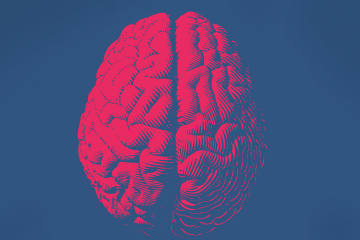Johns Hopkins researchers have spent nearly two decades studying the therapeutic qualities of psilocybin—the psychoactive ingredient of so-called magic mushrooms—on treating afflictions such as addiction disorder, depression, and anxiety. But should it become the first psychedelic drug approved for medical use, psilocybin may face a rather mundane hurdle to widespread use: health insurance.
The drug's psychoactive effects last anywhere from four to six hours, during which time its users require constant monitoring by medical personnel. It's a lengthy and expensive proposition insurance may hesitate to cover, says Johns Hopkins psychedelics researcher Alan Davis.
Enter toad venom as a potential alternative to the magic mushroom. Well, sort of. The psychoactive drug in question, 5-MeO-DMT, is most often consumed via synthetically produced vapor but can also be harvested from certain plants or the venom of the Colorado River toad. And preliminary studies suggest that it may combat depression and anxiety just as effectively as psilocybin, requiring a much shorter duration to reap the benefits.
Picture a 5-MeO-DMT psychospiritual retreat, or perhaps a more informal group session at someone's home. As music plays in the background, attendees check in with one another, talking about how they feel and what they hope to achieve by taking the drug. One by one, they take turns inhaling a vaporized form of the drug as a facilitator stands by to ensure their safety.
"The experience is going to start within 10 to 30 seconds and then you're going to be physically incapacitated for 20 to 30 minutes," Davis explains. "That means you'll want to have someone who knows what's going to happen administer it to you and be there in case you have any challenging physiological experiences." What follows is often a powerful, mystical experience—a feeling of pure awareness, of freedom from self-limitations, and of a bond with something greater. Many refer to the drug's effects as ineffable, literally, indescribable in words. For some, perception of time, vision, and sound can be distorted. And then, in less than an hour, the trip is over, leaving its users with a new, mood-altering perspective on their lives.
Adherents of 5-MeO-DMT, a Schedule 1 controlled substance since 2011, refer to the drug as Quintessence or, more tellingly, The God Molecule. But though its psychoactive effects, when correctly administered, are similar to psilocybin's, the drug appears to see little recreational use—actual numbers are impossible to find, because the drug has not been listed in epidemiological surveys. Davis, a postdoc fellow with the School of Medicine's Behavioral Pharmacology Research Unit, is one of the few researchers looking into who is using the drug, why, and how often. "Not many people have written about it," Davis says in explaining its relative obscurity among psychedelics. "It is also hard to find."
"Because 5-MeO-DMT is short-acting and lasts approximately 30-90 minutes, it could be much easier to use as an adjunct to therapy because current therapies usually involve a 60 – 90-minute session." - Dr. Alan Davishttps://t.co/ztytnMqE1u
— Johns Hopkins Psychedelic Research Unit (@JHPsychedelics) March 22, 2019
For a March study in The American Journal of Drug and Alcohol Abuse, Davis conducted an online survey of 362 people from a group that uses the drug in ceremonial group settings, primarily in the Western United States. Respondents reported that they had attended sessions, containing between five and 12 people, each one overseen by a facilitator who administers the drug. Participants took turns being dosed, then ended the experience with a "closing circle" or "checkout" where they shared their thoughts on what just happened. Of the 162 individuals self-reporting to suffer from anxiety or depression, approximately 80 percent reported improvements in these conditions after using the drug. The study did not determine how long the improvements lasted.
Also see
Science has yet to unlock precisely how psychedelics provide relief for some individuals. Davis suspects it may be a combination of neurological changes in users' brains and insights gained through the sheer intensity of the psychedelic experience. "When people do have mystical experiences with psychedelics, they can gain a new perspective on themselves, their connection to the universe, or possibly a connection to God or an ultimate reality," Davis says. "It seems that these people were experiencing a psychotherapeutic benefit, though the results are more of a signal than a definitive answer about the substance's effect on depression and anxiety. However, they do mimic the strong evidence that we're seeing with psilocybin."
Davis and his co-authors have published three journal articles on the use of 5-MeO-DMT as they work to build a case for a clinical study of the drug. Studying illicit substances, he acknowledges, is "time-consuming and hard," since it can be difficult to garner support from the usual funders of drug research, such as the National Institutes of Health. But his goal is a worthy one: to ease suffering. He traces an interest in the psychotherapeutic potential of such drugs to his training in clinical psychology at a Veterans Affairs hospital where he encountered a subset of traumatized patients whose mental health issues were crippling and unyielding. "Those experiences really showed me how limited our current treatments are and convinced me that we should be exploring everything possible, including psychedelics, to find more options for people," he says.
Posted in Health
Tagged depression, drugs, anxiety, psychedelics









